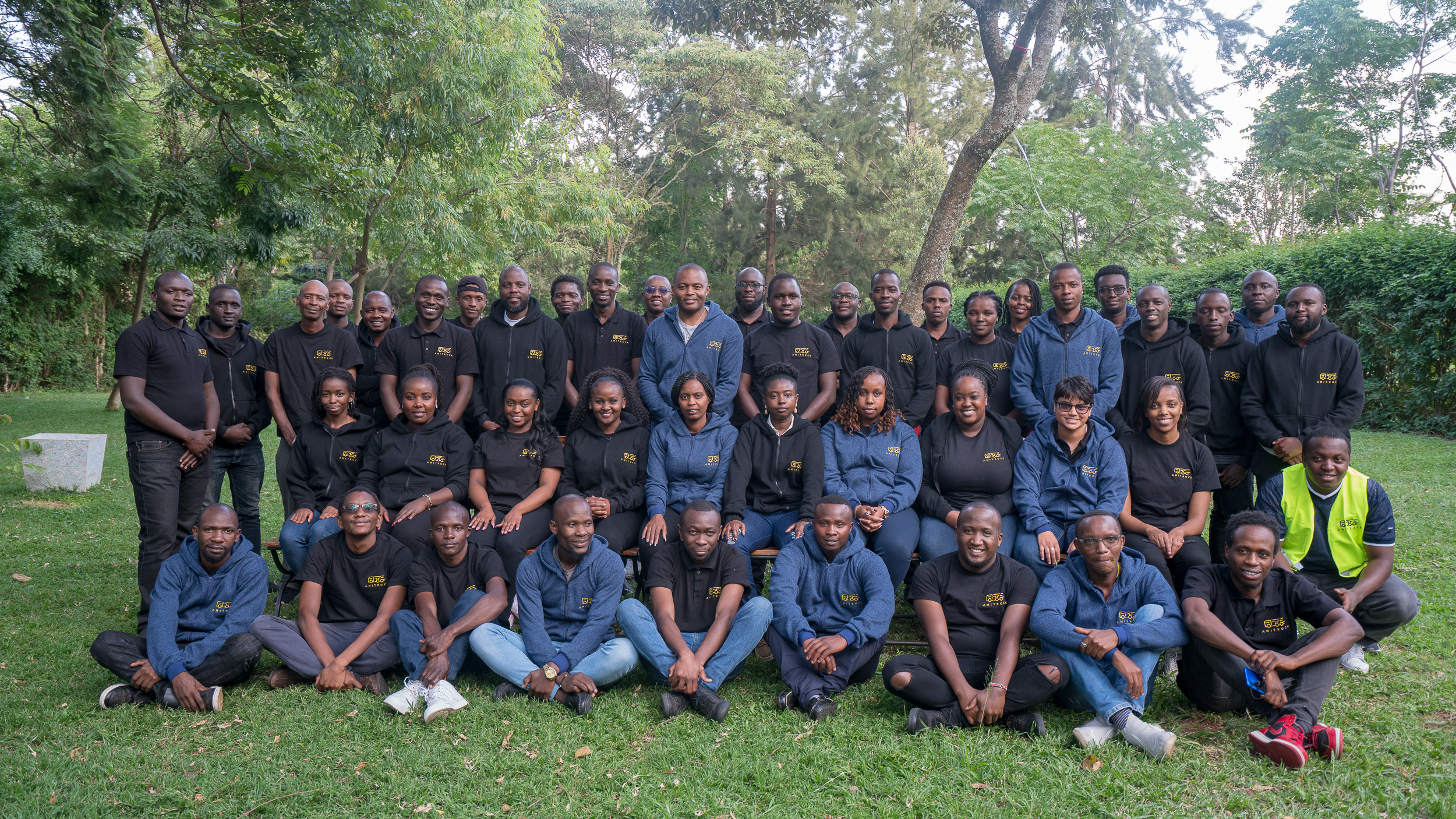For years, the shipping business in Africa was inefficient and costly due to the traditional way of running operations – traditional in the sense that a shipper must physically look for a transport company, sometimes through a middleman and often, once the goods have been delivered, the trucks almost always leave empty back.
On a continent like Africa, where roads are heavily used for transporting goods, any inefficiency that arises leads to higher goods prices for the end customer. However, in the last decade, technical solutions have emerged that make the sector more efficient and shipping cheaper, while increasing the availability of options for shippers.
Amitruck, a Kenyan technology-enabled logistics platform, is one such provider of solutions that streamline the shipping market. The startup, which got off to a great start in Kenya, will bolster its technical, operations and sales teams to lay the groundwork for its entry into the Tanzania and Uganda markets after raising $4 million in seed funding has raised, bringing the total funds raised to date to $5 million. The expansion plans come as it appears to be the regional hub for shippers and carriers doing domestic and cross-border business.
“The most important purpose of this round is recruitment. We are also improving our technology as we begin our expansion into other countries in Africa,” said Amitruck’s Founder and Chief Executive Officer Markus Mwangi said TechCrunch.
Photo credit: Amitruck
The seed round was led by Better Tomorrow Ventures (BTV) with participation from Dynamo Ventures, Rackhouse Venture Capital, Flexport Inc, Knuru Capital, Launch Africa Ventures, Uncovered Fund and a number of angel investors.
Jake Gibson, BTV’s General Partner, said, “As an investor in a Unicorn CloudTruck startup here in the US, we have an in-depth understanding of the operational and financial needs of truckers.”
“While the freight forwarding and logistics business in Africa has grown enormously over the years, the pace of innovation, particularly in administration, has been slow. Amitruck’s solution is ideal to bring the industry into the 21st century,” he said.
Launched in 2019 as a digital logistics marketplace, Amitruck connects freight forwarders with transport companies that operate trucks, vans, tuk-tuks (three-wheelers), pick-up trucks and motorcycles and allows them to negotiate transport rates. The platform also allows shippers to customize services, for example to add unloading fees. The platform includes a carrier’s rating and average number of trips made, data that helps shippers narrow their choices. The process begins once both parties have reached an agreement.
“Amitruck connects shippers directly with carriers, providing a platform where you can get secure transportation at competitive prices,” said Mwangi.
“In an informal environment you can have up to three intermediaries between a transport company and the cargo owner or shipper. And these guys can cause several problems; including claiming up to 60% of delivery fee, and if something happens to your cargo (loss or damage), it is very difficult for you to get compensation. It is very difficult for carriers to compare the quality and level of service they will receive. So it’s quite manual, tedious and very difficult to know who is good [at what they do] and who doesn’t.”
Amitruck’s 300+ B2B customers in Kenya include FMCG firm Unilever, L’Oreal; a beauty company, SkyGarden; an e-commerce platform and Twiga; a marketplace for fresh produce. They also work with individual clients who are relocating, for example.
The goods transported by Amitruck’s partners are insured. The startup also provides operational support.
“We’re a one-stop shop, when you contact us you literally relieve the headache of transportation,” he said.
Mwangi, a former investment banker, wasn’t always involved in the logistics industry, except when his father died and he had to take a night job as a truck driver to pay his tuition at the City, University of London, where he graduated in mathematics.
After graduating, he joined Bluecrest Capital Management, a British-American hedge fund, as a member of the executive team responsible for operating a number of private equity investments in Canada, Ecuador and China. He later joined Pictet Asset Management firm, where he rose to portfolio manager for equities, a position he later left in 2017 to pursue entrepreneurship.
“When I left Pictet in 2017, I was part of a team of four managing a €5 billion portfolio, but then I wanted more out of life. I wanted to build something, I wanted to do something more meaningful with impact, so I resigned. On my visit home, I spoke to a family friend… and the gap in trucking just seemed so obvious,” Mwangi said.

Amitruck is preparing to enter the Tanzania and Uganda markets. Photo credit: Amitruck
Mwangi is optimistic about the future and says the logistics sector offers tremendous opportunity for companies like his trying to bring order to the industry. On his journey, he has to face competition from other startups like Lori Systems, which started in Kenya before expanding to Nigeria, and Kobo360 and trade depot, both based in Nigeria.
It has over 8,000 vehicles registered on its platform, and Mwangi says the company’s sales are up 1,000% in 2021 from 400% last year as Covid highlighted the need to digitize supply chain processes.
“The opportunity is huge. Most of this market is still controlled by the middlemen. Closely followed by our customers’ own vehicles. In Africa, 99% of goods have to be transported by vehicle. We really don’t use that much water or air. And right now, transporting these goods can cost up to five times what it costs in more developed markets,” Mwangi said.
Africa’s transport and logistics sector is expected to grow massively, especially after the implementation of the already signed African Continental Free Trade Area (AfCFTA), which will make the continent the largest single market in the world.
